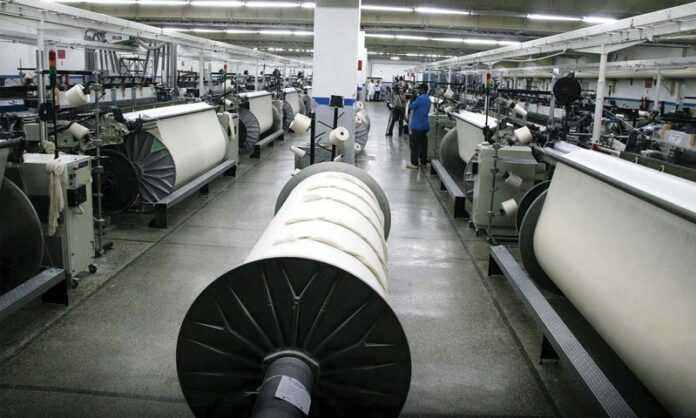–‘Pakistan aims to increase its global textile share from $13.3bn to $25.3bn in next five years’
–‘Govt will ensure regionally competitive energy prices across entire textile chain – electricity at 7.5 cents/kWh and gas at $6.5/mmBTU’
LAHORE: The much-awaited ‘long-term textile policy’ has been submitted by the Ministry of Commerce to Prime Minister Imran Khan’s office for his approval.
According to details available with this scribe, the policy consists of 10 components: energy, cotton, man-made fibre (MMF), dyes and chemicals, subsidized credit, value-added rebates, non-traditional markets, role of women, youth skills development and entrepreneurship programme, and water tariff.
As per the sources, the textile policy is likely to be approved by PM Imran Khan “in a week or two”.
Earlier, after taking charge of the commerce ministry, Adviser to PM on Commerce Abdul Razak Dawood had directed Taskforce on Textile Chairman Ahsan Bashir to develop a long-term textile policy for the sector.
Ahsan Bashir, a leading industrialist and former All Pakistan Textile Mills Association (APTMA) chairman, consulted all relevant stakeholders from the industry and prepared the draft of Pakistan’s long-term textile policy.
According to the policy draft available this scribe, Pakistan aims to increase its world textile share from 1.6pc ($13.3 billion) in 2019 to 3pc ($25.3 billion) in the next five years.
“To achieve this, a total of $9.75 billion of additional investment will be required in the first phase (FY20-25). For the second phase (FY26-30), an amount of $19.79 billion will be required to achieve the target of $50 billion textile exports.”
During the course of the policy, Pakistan will ensure regionally competitive pricing of energy across the entire textile chain – electricity at 7.5 cents/kWh and gas at $6.5/mmBTU.
The textile policy envisions acquiring high yielding seed technology from international sources for enhanced cotton production, besides restructuring research and development on modern lines, removal of non-tariff barriers and duties and facilitation of land routes for cotton export/import.
FOUR-TIER STRATEGY
As per the policy, without diversification in the MMF products, Pakistan will not able to penetrate the export market of MMF clothing. More rapid export growth will initially rely on capturing higher market shares in Pakistan’s existing strengths (basic home textiles and garments) in current markets and penetrating newer and dynamic markets, such as China, India, Bangladesh, Japan and ASEAN countries.
“To achieve and sustain accelerated exports growth targets, the policy will require actions centred on four pillars that are: tier one – building an enabling environment which includes the establishment of institutions for trade policy coherence and implementation. Tier two is ‘breaking into new products’ that means rationalizing trade policy to ensure level playing field and improving the environment for domestic and foreign investment. Tier three is ‘breaking into new markets’ that includes improving trade facilitation and promoting economic integration with Asia. Lastly, the fourth tier which is ‘increasing worker and consumer welfare’ includes improving skills and literacy of workers, implementation of labour and work safety guidelines and making safety nets more effective in dealing with trade shocks.”
The policy recommended concerted efforts on MMF to achieve 50pc share in production and exports of Pakistan.
It also recommended rationalization of 18pc duty or rebate in lieu thereof on dyes and chemicals and suggested a freight subsidy to explore non-traditional markets like Africa and Central America.
The policy suggested facilitation of women employment in textiles, allocation of special grants for gender-specific employment, and increasing female labour force participation (FLFP) from its current level of 25pc to 30pc by 2025, in line with countries that have achieved growth.
Innovation will be brought to entrepreneurship programmes for fresh graduates so as to facilitate new garment firms; specialised programmes targeting fresh graduates of NTU, PIFD and other textile institutes will be introduced so that their skills could be fully utilised.
The policy purposed to make water tariff uniform nationwide, as currently there are inconsistencies – water tariff is Rs53 in Punjab, Rs52 in Balochistan and Rs242 in Karachi.
For subsidized credit, the policy recommended institutionalising long-term financing facility (LTFF), ERF and credit allocation for the textile sector, ensuring fund repayment via technology upgradation fund facility (TUFF) scheme and additional funding for export financing facility (EFF) scheme of the central bank.




